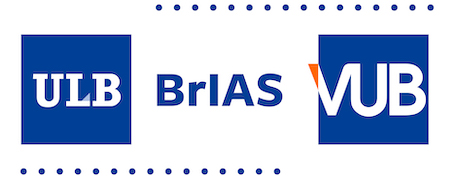Fractionation technology
Program:
09:00-09:10 Welcome
09:10-9:45 Dr Maarten Schutyser - Associate Professor at the Laboratory of Food Process Engineering at Wageningen University & Research, Wageningen, Netherlands
Sustainable food production by dry fractionation and smart drying
09:45-10:20 Dr Lalitha Gottumukkala - Chief Innovation Officer at Celignis Analytical, Limerick University, Limerick, Ireland
EnXylaScope. Unleashing Xylan´s Potential with Enzymes for a Scope for Consumer Products
10:20-10:55 Dr Adeline Boire - Research Associate at French National Institute for Agricultural, Food and Environmental Research (INRAE), BIA Unit, France
Proteins from crop: properties and extraction.
10:55-11:20 Tien Nguyen - PhD candidate at Laboratory of Biomass and Green Technologies, University of Liege - Gembloux Agro-Bio Tech, Belgium
Sustainable management for dragon fruit wastes: from peels to biodegradable films
11:20-11:55 Dr Zsófia Kádár - Project Acquisition Coordinator at Bio Base Europe Pilot Plant, Ghent, Belgium
Scale up bioprocesses at kilogram to multi ton scale
Abstracts:
Dr. Maarten Schutyser - Associate Professor at the Laboratory of Food Process Engineering at Wageningen University & Research, Wageningen, Netherlands
Sustainable food production by dry fractionation and smart drying
Food transitions are a must to come to a global sustainable food production system. Although plant protein transition is a necessary step, traditional wet processing routes have an enormous negative impact on the footprint of food ingredients. In the Laboratory of Food Process Engineering at Wageningen University & Research we study dry fractionation being the combination of milling and dry separation to prepare enriched legume & cereal ingredient fractions with highly functional properties. However, sometimes high purity ingredients are required in which a drying step is necessary to obtain a shelf-life stable and functional ingredient. We aim to leap forward and reduce energy use in drying operations by better understanding spray drying and designing electrically-driven dewatering & drying processes.
Dr Lalhita Gottumukkala - Chief Innovation Officer at Celignins Analytical, Limerick, Ireland
EnXylaScope. Unleashing Xylan´s Potential with Enzymes for a Scope for Consumer Products
Enxylascope is a project, thought and written by Celignis, with multiple focus areas to achieve consumer products free of liquid plastics derived from fossil fuel resources. The project has several novel elements, with a strong commercial focus. The novelty starts with the discovery of novel xylan side chain acting enzymes and extends to their application to develop novel xylan-based products.
Celignis is involved in the isolation of natural isolates that have the ability to produce multiple sidechain-acting enzymes of interest by adaptive culture enrichment process. Additionally, Celignis is the leader of WP4, being responsible for the extraction of water-soluble xylan and its conversion it to water insoluble forms with high water holding capacity using the enzymes developed in the project. The target is that the modified xylan is used as an alternative for liquid plastics that are used as rheology modifiers in personal care and cosmetics products.
Celignis is also undertakeing the full-length techno-economic analysis (TEA) of the process.
Dr Adeline Boire - Research Associate at French National Institute for Agricultural, Food and Environmental Research (INRAE), BIA Unit, Nantes, France
Proteins from crop: properties and extraction.
Crops constitute a major source of dietary proteins. These proteins are diverse in terms of biological function, molecular structure, and supramolecular assembly. This diversity often means that research is experimentally limited to a few proteins. This diversity may be addressed by computational approaches prior to the experimental phases. One important source of information is still relatively unexplored in food science: amino acid sequences of food proteins which are freely available and whose number increases with sequencing advances. Through this talk, I will first show how computational approaches can help to pre-screen crop protein properties and possibly methods for extracting/purifying them. Then, I will illustrate how extraction may affect the structural properties of plant proteins through the use of two examples: Rubisco from leaves and globulins from pea seeds.
Nguyen Ngoc Thanh Tien - PhD candidate at Laboratory of Biomass and Green Technologies, University of Liege – Gembloux Agro-Bio Tech, Belgium
Sustainable management for dragon fruit wastes: from peels to biodegradable films
Dragon fruit peel, known as solid waste from food industries, is acknowledged as a good source of pectin whose potential application was to produce biodegradable films. Pectin was favorably extracted by employing microwave-ultrasound assisted extraction combined with the solvent system of choline chloride–glucose–water (5:2:5). Under the optimized condition including liquid/solid ratio of 35.25 mL/g, water/solvent ratio of 3.37 mL/mL, microwave irradiation of 14.26 min at 240 W followed by sonication of 46.07 min, the pectin yield was 19.39%. The targeted product was categorized as high methoxyl pectin with a degree of esterification of 59.76% and an anhydrouonic acid content of 64.28%, and as a pseudoplastic substance with neutral pH, an average level of solubility, high equivalent weight, high molecular weight, high antioxidant activities, and high viscosity at all tested domains of shear rate. Afterwards, this pectin mixed with potato starch was successfully exploited to fabricate biodegradable films.
Dr Zsófia Kádár - Project Acquisition Coordinator at Bio Base Europe Pilot Plant, Ghent, Belgium
Scale up bioprocesses at kilogram to multi ton scale
A process developed in a laboratory must be translated into a full manufacturing scale. However, the fermentation process together with the downstream processing does not always translate easily in an efficient large-scale production process. Therefore, scaling up bioprocesses is a high-stakes endeavor, requiring time and investment.
Bio Base Europe Pilot Plant (BBEPP), located in the port of Gent, Belgium, enables this transition from laboratory to tons scale. BBEPP is a multi-purpose pilot plant for the development and scale-up of biobased processes with a wide array of pilot equipment for pretreatment, fermentation, biocatalysis, green chemistry and product recovery. It is capable of scaling up a broad variety of biobased processes up to an industrial level. BBEPP’s mission is to close the gap in the innovation chain of the bio-based economy, bridging science and industrial production.
